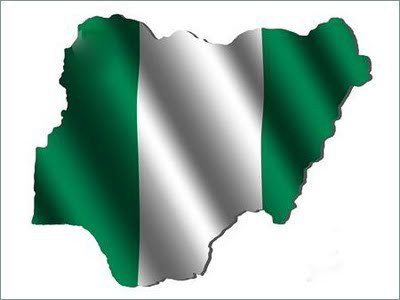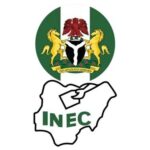Electoral fraud has been a persistent issue in Nigeria’s political landscape, and it has significant implications for the country’s democratic process and governance. The issue of electoral fraud refers to the manipulation of the electoral process for the purpose of securing an unfair advantage for a particular political party or candidate. This can take many forms, such as vote-buying, ballot-stuffing, intimidation of voters, and manipulation of the results of the election.
Electoral fraud has a damaging impact on the credibility of the electoral process and undermines public trust in the democratic institutions. When elections are rigged, the will of the people is not reflected in the results, and the legitimacy of the elected officials is called into question. This undermines the stability of the political system and creates a sense of disillusionment and frustration among the citizens, who feel that their voices are not being heard.
In Nigeria, electoral fraud has been a persistent issue for many years, and it has played a significant role in shaping the country’s political landscape. During elections, there have been widespread reports of vote-buying, voter intimidation, ballot stuffing, and other forms of fraud that have been used to manipulate the outcome of elections. This has led to widespread public skepticism about the electoral process and has eroded the credibility of the election results.
The implications of electoral fraud are far-reaching and can have serious consequences for the stability of the country. When the election results are perceived as fraudulent, it can lead to widespread public protests and social unrest, as citizens demand that their voices be heard. This can result in violence and political instability, as opposition groups challenge the legitimacy of the government and demand reforms to the electoral system.
Electoral fraud also undermines the rule of law and creates a culture of impunity, where those who engage in fraudulent activities are not held accountable for their actions. This sends a message to the public that there is no consequence for engaging in unethical behavior and can contribute to a breakdown of social norms and values. It also undermines the institutions of democracy, as citizens lose faith in the electoral process and the ability of the government to represent their interests.
The issue of electoral fraud in Nigeria also has wider regional and international implications. When the results of an election are widely perceived as fraudulent, it can create tensions with other countries and lead to a loss of credibility and legitimacy on the international stage. This can damage Nigeria’s reputation and hinder its ability to engage in meaningful relationships with other nations.
Furthermore, electoral fraud also has significant implications for the stability and security of the country. When elections are rigged, it can lead to political violence and unrest, as dissatisfied citizens take to the streets to protest the results. This can escalate into widespread social unrest, which can have serious consequences for the stability and security of the country.
In addition to political violence, electoral fraud can also lead to the entrenchment of corruption and abuse of power. When the electoral process is rigged, it is often controlled by a small group of individuals with vested interests who use their power to perpetuate their hold on the political system. This creates a self-perpetuating cycle of corruption and abuse of power, as those in power use their positions to further entrench their hold on the system. This undermines the rule of law and can lead to widespread human rights abuses, as those in power are able to act with impunity.
Moreover, electoral fraud can also have negative consequences for the development of the country. When elections are rigged, it is often the case that the best candidates are not elected, and instead, those with connections to those in power or who have engaged in illicit practices are chosen. This results in a lack of competent leadership and a failure to address the pressing issues facing the country. This can lead to a lack of progress and a continued cycle of poverty and underdevelopment.
In Nigeria, the issue of electoral fraud has been particularly prevalent in recent years, and it has been a source of significant controversy and tension in the political landscape. For example, in the 2015 general election, there were widespread allegations of electoral fraud and manipulation of the results, leading to widespread public outrage and a sense of disillusionment with the political system.
The government has a responsibility to ensure that elections are free, fair, and transparent, and that the results accurately reflect the will of the people. To achieve this, it is essential that the government takes steps to address the issue of electoral fraud, such as implementing measures to prevent vote-buying and other forms of manipulation, and strengthening the capacity of the Independent National Electoral Commission (INEC) to conduct free, fair and transparent elections.
The government should also work to address the root causes of electoral fraud, such as corruption and lack of transparency in the political system. This requires addressing the culture of impunity and the lack of accountability in the political system, as well as addressing the systemic problems that allow corruption to flourish, such as weak institutions and lack of enforcement mechanisms.
Moreover, the media also has a critical role to play in addressing the issue of electoral fraud. A free and independent media is essential for ensuring that the public is informed about the electoral process and the results, and for exposing any instances of electoral fraud. The media can play an important role in holding the government and the political parties accountable, and in raising public awareness about the issue of electoral fraud.
In conclusion, electoral fraud is a serious issue in Nigeria’s political landscape, and it has significant implications for the country’s democratic process and governance. The government has a responsibility to address the issue of electoral fraud and to take steps to ensure that elections are free, fair, and transparent. The media also has a critical role to play in exposing instances of electoral fraud and in raising public awareness about the issue. Addressing the issue of electoral fraud requires a multi-faceted approach, including measures to prevent vote-buying and other forms of manipulation, as well as addressing the root causes of electoral fraud, such as corruption and lack of transparency in the political system.

![]()






















GIPHY App Key not set. Please check settings